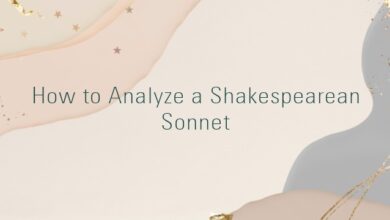
William Shakespeare – Sonnet 87
Farewell! thou art too dear for my possessing,
And like enough thou know’st thy estimate,
The charter of thy worth gives thee releasing;
My bonds in thee are all determinate.
For how do I hold thee but by thy granting?
And for that riches where is my deserving?
The cause of this fair gift in me is wanting,
And so my patent back again is swerving.
Thy self thou gavest, thy own worth then not knowing,
Or me to whom thou gav’st it else mistaking;
So thy great gift, upon misprision growing,
Comes home again, on better judgement making.
Thus have I had thee, as a dream doth flatter,
In sleep a king, but waking no such matter.
This sonnet reads as if it were the culmination of the rival poets’ sequence which has ended in the final rejection of the poet by the youth in favour of the rival. It links closely to Sonn.90 which has the same theme of dealing with rejection. The opening word ‘Farewell!’ is almost a sufficient summary of the whole poem. The long series of loving exchanges has finally come to an end, but the poet does not attach any blame to the beloved. Instead he finds justification for the rejection in his own inadequacies and deficiencies. Nevertheless it is difficult not to bring an opposite meaning to the poem, a meaning which subverts its ostensible message. This subversion is achieved by the use of legal and financial language which throws upon the youth the suspicion that he is a calculating snob who sees in his current liaison a serious misjudgement which will damage his social standing. The overwhelming sense of loss which the poem conveys also contributes to a feeling that the youth is cruel and responsible for an enormous and cynical betrayal.
KDJ suggests that the number 87 could be important in the sequence, possibly as a glance at the structural arrangement of Sir Philip Sidney’s Astrophil and Stella, a collection which commences a group of sonnets on the theme of separation at precisely this number. Sidney could also be linked through his description of feminine endings, which are used to the full in this sonnet and Sonnet 20. See the commentary on Sonn.20 for the extract from Sidney’s Defence of Poesie which defines the types of endings possible.
The 1609 Quarto Version

FArewell thou art too deare for my poſſeſſing,
And like enough thou knowſt thy eſtimate,
The Charter of thy worth giues thee releaſing:
My bonds in thee are all determinate.
For how do I hold thee but by thy granting,
And for that ritches where is my deſeruing?
The cauſe of this faire guift in me is wanting,
And ſo my pattent back againe is ſweruing.
Thy ſelfe thou gau’ſt,thy owne worth then not knowing,
Or mee to whom thou gau’ſt it,elſe miſtaking,
So thy great guift vpon miſpriſion growing,
Comes home againe,on better iudgement making.
Thus haue I had thee as a dreame doth flatter,
In ſleepe a King,but waking no ſuch matter.
Commentary
1. Farewell! thou art too dear for my possessing,too dear = too precious. Also too costly, too expensive; too damaging. An echo perhaps of:
Was it the proud full sail of his great verse,
Bound for the prize of all too precious you, 86
for my possessing = for me to possess. There is also a paradoxical sense which hovers in the background ‘You are too much loved by me (too dear) for me to be able to possess you in love’.2. And like enough thou know’st thy estimate,like enough = it is probable that, probably. The expression however conveys a sense of doubt. Perhaps the reasons are not those shortly to be stated, and could be even worse (e.g. the youth is faithless).
thy estimate = your worth in other’s eyes, the value people put on you, your absolute worth independently of other’s opinion.3. The charter of thy worth gives thee releasing;The charter of thy worth = a privilege and license legally attached to you because of the qualities and excellence which are inherent in you. The word charter recalls the Great Charter, or Magna Carta, which listed the rights and privileges of the barons under King John. Shakespeare uses the word usually in the sense of ‘rights and privileges sanctioned by law’.
releasing = freedom from the duties imposed by the bonds of love.4. My bonds in thee are all determinate.
bonds – legal agreements, usually such as are made between borrower and lender. Shakespeare also uses the word in connection with the marriage bond and bonds of kinship. Thus Cordelia to Lear:
…..I love your Majesty
According to my bond, no more nor less. KL.I.1.91-2.
Onions gives four meanings of the word: 1. chain, fetter, usu.pl.; 2. tie of duty, obligation of affection; 3. cementing or uniting force; 4. deed by which one binds oneself to make a payment or fulfil a contract. It is often found in connection with some sort of loving relationship. Of 75 occurrences of ‘bond’ in the Shakespearian corpus, more than half occur in the Merchant of Venice, in connection with the famous bond that Shylock has of Antonio, an agreement that Antonio will pay him one pound of flesh should he default on payment of a loan. In the plural (24 uses, including 3 in the sonnets) the word often refers to a physical constraint. Other than that it describes a moral obligation, or duty of love. The other two uses in the sonnets are as follows:
Accuse me thus: that I have scanted all
Wherein I should your great deserts repay,
Forgot upon your dearest love to call,
Whereto all bonds do tie me day by day; 117
……….not from those lips of thine,
That have profaned their scarlet ornaments
And sealed false bonds of love as oft as mine, 142
In this sonnet the meaning is coloured by legal, financial and loving considerations, and one could paraphrase as ‘all contracts I have entered into to love you, (or for you to love me) are now terminated’.5. For how do I hold thee but by thy granting?
The use of the present tense here is noticeable, suggesting that the severance has not yet taken place. One would expect For how have I held thee. If one takes these lines in their literal and physical sense, as I believe one has to on occasion, the effect of contemplating the proposed separation is extraordinarily desolate. The emptiness is almost tangible as the poet reflects on the moments of love spent together which are to be no more. The continuation also of the legal and political terminology points the contrast between a simple and direct experience of loving and embracing and that of calculating the cost and benefit, since hold suggests holding a title and granting implies issuing a charter as a permit to love.
Lines 5-12 also are unique in their continuous use of the feminine -ing ending, a repetition which seems to hammer home the finality of separation and the desolation which it brings.(See note above).6. And for that riches where is my deserving?that riches – riches was often treated as a singular noun, similar to French richesse. Here it refers to the wealth of loving, holding, possessing,7. The cause of this fair gift in me is wanting,The cause of this fair gift = the justification for you granting this fair gift of yourself.
is wanting = is lacking, is absent.
8. And so my patent back again is swerving.

back again is swerving = reverts to the grantor. swerving is unusual in this context but is perhaps pressed into service for the sake of the rhyme with deserving.9. Thy self thou gavest, thy own worth then not knowing,Thy self thou gavest – SB notes that this phrase and possessing in line 1 are coloured by ideas of sexual possession and sexual submission. As also had in l.13.10. Or me to whom thou gav’st it else mistaking;
Q gives a comma after it, but the natural meaning of the line seems to follow on from the previous one: ‘Or else you misjudged me, the beneficiary of your gift’. Most editors retain the comma after it and place an additional comma after me.11. So thy great gift, upon misprision growing,misprision – OED gives various meanings for this, some of them involving treason and felony. However the continuation of the sentence in the following line more or less confirms that the meaning required is ‘misjudgement, error’. The error of misjudgement made is corrected ‘on better judgement making’. Compare:
What hast thou done? thou hast mistaken quite
And laid the love-juice on some true-love’s sight:
Of thy misprision must perforce ensue
Some true love turned and not a false turned true. MND.III.2.88-91.
upon misprision growing = founded upon misjudgement, becoming more misguided owing to the preliminary misjudgement.12. Comes home again, on better judgement making.Comes home again = reverts to the owner;
on better judgement making = when you succeeded in making a true and more realistic judgement.13. Thus have I had thee, as a dream doth flatter,Thus have I had thee – In the past then it seems I have loved and possessed you only as etc.
as a dream doth flatter – but only as in a dream, which flatters by pretending to be real. flatter also had the meaning of stroke, caress (OED.1.b.). See Sonn.33.14. In sleep a king, but waking no such matter.
In sleep a king = being, when I sleep, like a king (who is surrounded by flatterers); when I sleep enjoying all the privileges of royalty (by possessing you).
no such matter = not a king at all; having no such privileges, finding that the situation is in no way as my dream showed it to be.





